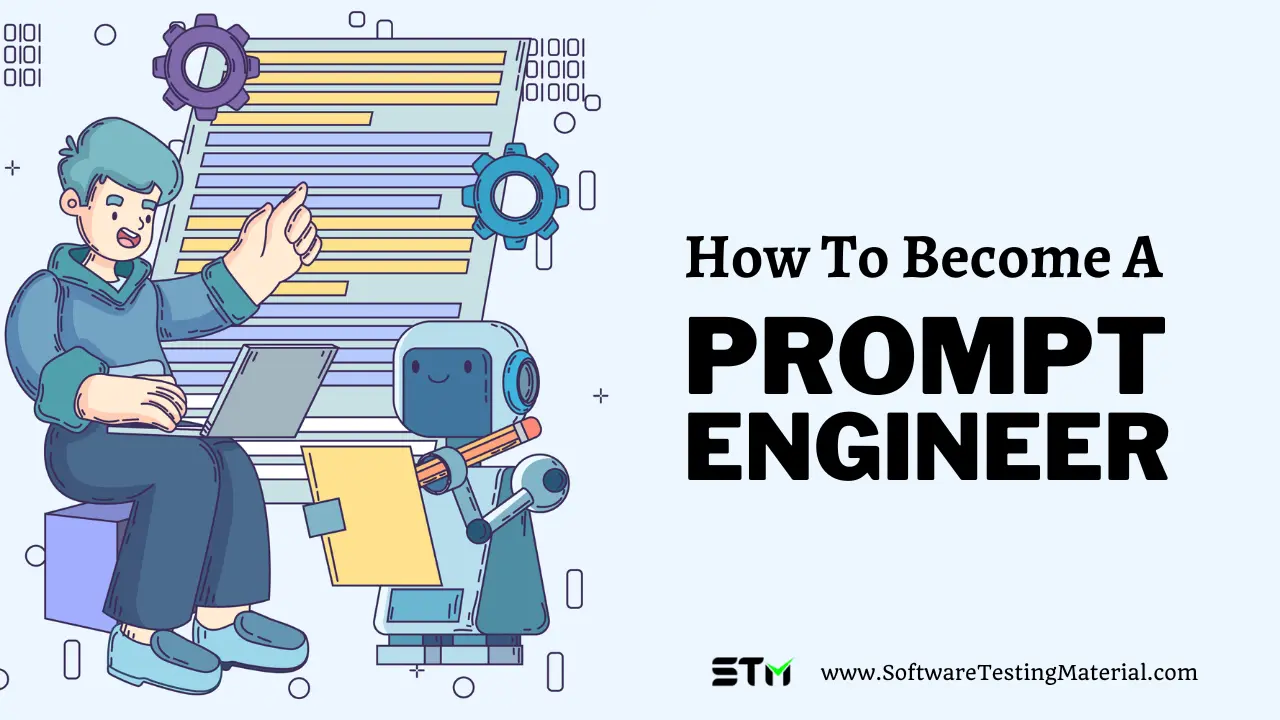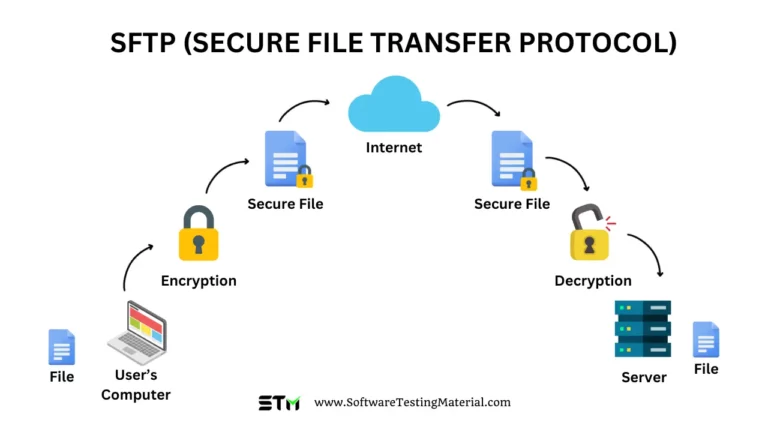How To Become A Prompt Engineer in 2024
This article will take you on a journey to explore how to become a Prompt Engineer. Explore the world of prompt engineering and uncover the secrets to mastering this innovative field.
Have you ever talked to Siri, Alexa, or another smart assistant and wondered how it understands and responds to you?
That’s where a Prompt Engineer comes in! It’s a cool job where people teach computers and robots how to answer our questions and help us.
Must read: How To Become A Game Tester
If you love technology and are curious about how things work, then becoming a Prompt Engineer might just be the adventure you’re looking for.
According to a report by Grand View Research, the global prompt engineering market size reached an estimated USD 222.1 million in 2023 and is expected to experience a compound annual growth rate (CAGR) of 32.8% from 2024 to 2030.
This article will take you on a step-by-step journey to learn what it takes to become one, in a way that’s easy and fun to understand.

What is Prompt Engineering?
Prompt Engineering is a specialized field that works with artificial intelligence (AI) to create prompts that help AI and computer programs do what we want them to do.
These prompts are like instructions that help the AI come up with specific answers or solutions.
To do this job, you need to really understand how AI works, what it can and can’t do, and how to ask questions or give tasks in a way that makes sense.
You also need to know about natural language processing, which is how computers understand and use human language, and be aware of any biases that might affect the answers.
This job is very important for making AI more effective and useful in different areas like helping customers, creating content, and analyzing data.
What do Prompt Engineers do?
Prompt Engineers play a crucial role in the AI ecosystem by designing, testing, and refining prompts to ensure that AI systems produce accurate, relevant, and contextually appropriate responses.
Their work involves a deep understanding of both the technical capabilities of AI models and the nuances of human language.
Imagine telling a robot to make you a sandwich. You need to explain every step in a way that makes sense to the robot.
That’s what Prompt Engineers do with AI – they create and fine-tune instructions so the AI can give us the answers or help we need for different tasks.
Think of them as teachers for AI, showing it how to understand and respond in the best way.
They work closely with teams of data scientists, software engineers, and subject matter experts to dig into a challenge, continually adjusting prompts based on feedback and performance to make sure the AI can do its job really well.
By bridging the gap between human intentions and machine interpretations, Prompt Engineers contribute significantly to making AI applications more user-friendly, efficient, and impactful in various domains.
Steps To Become A Prompt Engineer
Step 1: Acquire a Strong Foundation in Computer Science
Begin by obtaining a degree in computer science, software engineering, artificial intelligence, data science, or a related field. This will equip you with the foundational knowledge of programming, algorithms, and data structures, which are crucial for understanding AI behavior and natural language processing.
Step 2: Develop Proficiency in Programming Languages
Focus on learning and mastering programming languages that are commonly used in AI and machine learning, such as Python or Java or R or JavaScript. Being proficient in these languages will enable you to interact more effectively with AI models and algorithms.
Step 3: Study Natural Language Processing (NLP)
Gain a deep understanding of NLP techniques and tools, as this is central to the role of a Prompt Engineer. Familiarize yourself with NLP libraries like NLTK, SpaCy, or TensorFlow, and understand how AI can interpret and generate human language.
Step 4: Engage with AI and Machine Learning Projects
Practical experience is invaluable. Participate in projects that allow you to work with AI models, particularly those involving language understanding and generation. This could be through internships, personal projects, or contributing to open-source initiatives.
Step 5: Learn About AI Ethics and Bias
Educate yourself on the ethical considerations and potential biases within AI systems. Understanding these aspects is crucial to building AI solutions that are fair, unbiased, and beneficial to all users.
Step 6: Build a Portfolio
Document and showcase your projects and contributions in a portfolio. This should not only reflect your technical skills but also your ability to design effective prompts and your understanding of engaging AI systems through language.
Step 7: Network and Continue Learning
The field of AI is constantly evolving, so it’s important to stay updated with the latest trends, tools, and best practices. Attend workshops, seminars, and conferences, and connect with professionals in the field to expand your knowledge and opportunities.
By following these steps and continuously honing your skills, you can position yourself as a competent Prompt Engineer poised to contribute significantly to the advancement of AI technologies.
Skills You Need To Succeed In the Prompt Engineering Space
To excel as a Prompt Engineer, several skills are fundamental:
- Programming Proficiency: Command over programming languages such as Python, along with a good understanding of NLP libraries (e.g., NLTK, SpaCy, TensorFlow), is essential for building and customizing AI models.
- Analytical Thinking: The capability to dissect complex problems, analyze requirements, and devise efficient solutions is crucial in developing effective AI prompts and understanding model outputs.
- Creativity: Creativity is key in crafting engaging and nuanced prompts that can lead AI to generate desired outcomes across various contexts and languages.
- Understanding of Machine Learning Concepts: A solid grasp of machine learning concepts and how different models (like GPT-3) work under the hood assists in optimizing prompt design for better performance.
- Communication Skills: Effectively communicating your ideas and presenting your work to both technical and non-technical audiences is important for collaboration and feedback.
- Ethical Judgment: Being mindful of the ethical implications and potential biases of AI helps in developing more fair, unbiased, and responsible AI technologies.
- Lifelong Learning: The field of AI is rapidly advancing, so an eagerness to learn and adapt to new technologies, methodologies, and best practices is essential for long-term success.
Do You Need A Degree To Be A Prompt Engineer?
While having a degree in computer science, artificial intelligence, or a related field can provide a strong foundation for a career in prompt engineering, it is not strictly necessary.
Many successful Prompt Engineers are self-taught, leveraging online courses, tutorials, and community resources to build their skills.
The most critical factors are an understanding of programming, machine learning, and the ability to continuously learn and adapt.
Therefore, while a relevant degree can be beneficial, practical experience, skillset, and an ongoing commitment to learning are equally, if not more, important in succeeding as a Prompt Engineer.
How to Learn Prompt Engineering?
Learning prompt engineering involves a combination of structured education, practical experience, and community engagement.
Start by exploring online courses and tutorials that cover the basics of machine learning, natural language processing (NLP), and programming languages like Python, which are fundamental to understanding how AI models operate.
Engaging with projects and challenges offered on platforms such as GitHub can provide hands-on experience.
Additionally, participating in forums and communities related to AI and machine learning, such as Reddit’s r/MachineLearning or Stack Overflow, can offer invaluable insights, feedback, and networking opportunities.
Building a portfolio of projects that demonstrates your skills in prompt engineering can also be beneficial. Remember, consistent practice and staying updated with the latest advancements in the field are key to mastering prompt engineering.
Essential Skills Needed To Become A Prompt Engineer
The role of a prompt engineer demands a unique skill set that combines technical expertise with effective communication and problem-solving abilities. As this emerging field continues to evolve, prompt engineers must possess the following five key skills to excel in their roles:
#1. Proficient In Both Verbal And Written Communication
Prompt engineers play a vital role in effectively communicating with AI systems. Their task involves meticulously crafting detailed prompts by selecting precise terms and phrases. This meticulous process ensures the seamless interaction between humans and AI. The interdisciplinary nature of prompt engineering highlights the importance of collaboration and communication in the development process, where the strategic selection of words is key to achieving optimal results and enhancing the overall user experience.
This skill is crucial for collaborating with multidisciplinary teams and explaining AI technologies to non-technical stakeholders.
#2. Learn Programming Languages
Start with mastering programming languages pivotal to AI and machine learning, such as Python or JavaScript. These languages are the foundation of developing and implementing AI technologies.
#3. Previous Prompt Experience
Since prompt engineering is relatively new, there isn’t a set standard for past experience. However, many employers seek prompt engineers with demonstrated expertise in constructing and evaluating diverse AI prompts, particularly in leading models such as GPT and platforms like ChatGPT. Practical experience in these specialized domains, including fine-tuning prompts for specific applications and understanding nuances in prompt design, is highly valued by organizations looking to leverage the full potential of AI technologies.
#4. Understand Natural Language Processing (NLP)
Gain a comprehensive knowledge of NLP technologies. This will enable you to create prompts that facilitate natural and effective communication between humans and AI systems.
#5. Enhance Creativity And Critical Thinking
Develop your creative thinking skills to innovate unique prompts that can drive productive AI responses. Simultaneously, hone your critical thinking to evaluate and refine these prompts for optimal outcomes.
#6. Pursue Continuous Learning
Dedicate yourself to lifelong learning to keep abreast of the latest advancements in AI technologies. The AI field is rapidly evolving, and staying informed is key to maintaining relevance and innovation in your work as a prompt engineer.
#7. Data Analysis Skills
As a prompt engineer, having skills in data analysis is crucial. You will often work with large datasets to understand patterns and anomalies that can influence prompt design and performance. Familiarity with data visualization tools and statistical software helps in making informed decisions and adjustments to prompts. This analytical approach enables the tailoring of AI responses to better meet user expectations and project requirements.
#8. Develop Subject Matter Expertise
Becoming a subject matter expert in prompt engineering requires a deep understanding of both the technical and the human-centric aspects of AI interactions. This entails not only mastering the technology behind AI platforms but also grasping the psychology of human communication and how it can be mirrored or enhanced through AI. Specializing in a certain domain, be it healthcare, finance, or customer service, allows you to design prompts that are not only relevant but also highly effective in eliciting the desired response or action. This expertise improves the quality of AI-generated content, making it more useful and contextually appropriate for the end-users.
AI Prompt Engineer Responsibilities
AI prompt engineers play a critical role in shaping the interface between human input and machine understanding. Their responsibilities include designing, testing, and refining prompts to ensure interactions are seamless and productive.
This involves a deep understanding of AI behavior and the ability to anticipate how various prompts will influence AI responses to achieve desired outcomes.
They also need to stay updated on the newest advancements in AI technology and adapt their strategies accordingly.
Effective collaboration with other teams, such as developers and content strategists, is crucial to integrate the AI prompts into broader applications and services, making these professionals indispensable in creating intuitive, user-friendly AI interfaces.
AI Tools for Becoming a Successful Prompt Engineer
To excel as a prompt engineer, familiarizing oneself with a range of AI tools is crucial. These tools not only enhance understanding but also significantly improve the efficiency and effectiveness of AI prompt creation. Here are some indispensable tools in the arsenal of a prompt engineer:
- GPT (Generative Pre-trained Transformer): The foundation of many modern AI applications, understanding and leveraging GPT models, such as OpenAI’s GPT-3, is essential for crafting high-quality prompts that generate coherent and contextually relevant responses.
- TensorFlow and PyTorch: Proficiency in these machine learning libraries enables prompt engineers to experiment with and deploy AI models efficiently. Both provide comprehensive ecosystems for designing, training, and deploying AI models tailored to specific needs.
- Natural Language Processing (NLP) Toolkits: Libraries like NLTK (Natural Language Toolkit) or spaCy offer functionalities crucial for text analysis and preprocessing, which are imperative for refining prompts and interpreting AI responses accurately.
- APIs for AI Platforms: Familiarity with APIs for platforms like Google Cloud AI, Microsoft Azure Cognitive Services, or IBM Watson allows prompt engineers to integrate advanced AI capabilities into applications without building models from scratch.
- GitHub: A treasure trove of AI projects and code examples, GitHub is invaluable for prompt engineers looking to collaborate, learn from real-world projects, and stay updated on the latest trends and techniques in AI development.
Arming oneself with these tools, alongside a curious and innovative mindset, paves the way for success in the evolving field of prompt engineering.
Companies Hiring Prompt Engineers
Many companies are actively looking for skilled AI Prompt Engineers to join their teams. Here are some respected companies that are currently hiring engineers promptly:
- Google: Known for its innovative AI and machine learning projects, Google offers roles for prompt engineers in various departments focused on natural language processing and conversational AI.
- OpenAI: A leader in artificial intelligence research, OpenAI frequently seeks prompt engineers to contribute to its cutting-edge projects, including the development of GPT models.
- Microsoft: With its extensive investments in AI, including chatbots and cognitive services, Microsoft hires prompt engineers to enhance user interactions through better AI prompts.
- IBM: IBM’s Watson platform is at the forefront of AI technology, requiring skilled prompt engineers to create and optimize AI interactions for businesses across multiple industries.
- Amazon: Amazon’s Alexa and other AI-driven services need prompt engineers to develop engaging and effective voice and text interactions for users worldwide.
- Facebook (Meta): As a company that’s deeply invested in AI for social media and virtual reality, Meta looks for prompt engineers to innovate in the space of conversational AI and personalized experiences.
- Salesforce: Specializing in customer relationship management software, Salesforce hires prompt engineers to fine-tune AI interactions within their ecosystem, enhancing customer service and automation.
Salary of a Prompt Engineer
The salary of a Prompt Engineer can vary widely depending on factors such as geographical location, experience, and the specific industry they work in.
According to data from Glassdoor and Payscale, entry-level Prompt Engineers can expect to earn an average of $60,000 to $80,000 annually.
With a few years of experience, this salary range typically increases to between $80,000 and $120,000. Senior-level Prompt Engineers or those working in specialized sectors such as finance or tech giants like Google, Amazon, or Facebook can command salaries upwards of $150,000 to $200,000 or more.
Additionally, the demand for skilled engineers in the field of AI, including those proficient in prompt engineering, shows a growth trend that may further influence salary scales upwards. It’s important to note that these figures are averages and actual salaries can vary.
The future of Prompt Engineering as a career
The future of Prompt Engineering as a career seems promising, with the demand for AI and machine learning expertise continuously on the rise.
As AI systems, such as Generative Pre-trained Transformers (GPT), become more sophisticated, the role of prompt engineers in crafting queries that elicit the highest quality responses from these systems becomes increasingly critical.
With every sector seeking to leverage AI for enhanced efficiency, creativity, and decision-making, the potential applications for skilled prompt engineers are vast.
This career path not only opens doors in technology companies but also in industries like healthcare, finance, education, and entertainment, where tailored AI solutions can provide significant value.
Furthermore, as AI technology evolves, prompt engineers will be at the forefront, ensuring that AI applications are not only effective but also ethical and unbiased.
Their work will be crucial in shaping the future of human-AI interaction, making it a potent and promising career choice.
Conclusion
In conclusion, becoming a prompt engineer is an exciting opportunity for those interested in shaping the future of AI technology. By mastering coding languages, familiarizing oneself with AI models like GPT, and leveraging resources such as online courses and platforms like GitHub, anyone can start their journey in this field.
With its wide-ranging applications across various industries, prompt engineering not only promises a lucrative career but also the chance to make a significant impact on how we interact with AI.
The key to success lies in continuous learning and staying alongside technological advancements, ensuring that the integration of AI in our daily lives is both innovative and ethical.
Related posts:
- Prompt Engineering In Software Testing
- 30+ Prompt Engineering Interview Questions
- Artificial Intelligence In Software Testing
- AI Testing | Everything You Should Know
- What is Software Testing | Everything You Should Know
- Best Artificial Intelligence Tools
- Best AI Testing Tools
- Automation Testing Interview Questions
- Manual Testing Interview Questions
- Software Development Life Cycle (SDLC) – Complete Guide
- Software Testing Life Cycle (STLC) – Complete Guide
- Bug Life Cycle (Defect Life Cycle) – Complete Guide
- 100+ Types of Software Testing







